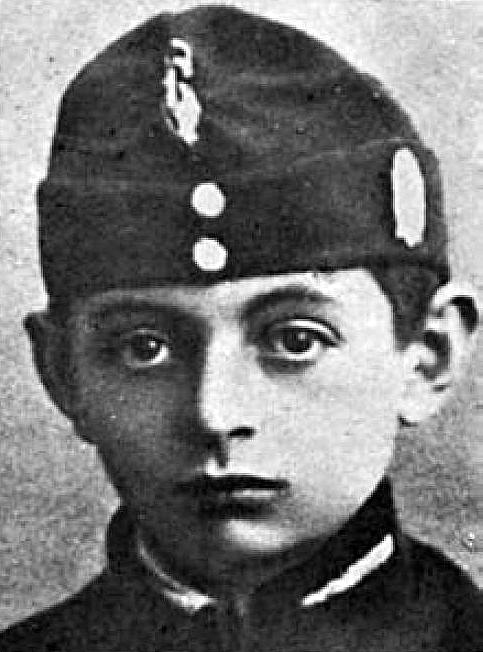In November 1918, Lwów became the scene of a Polish-Ukrainian conflict and the first of several wars for the borders of the reborn Polish state. Approximately 6,000 Polish volunteers, including almost 1,400 schoolchildren or students, joined the struggle against the Ukrainian army to defend the city. Those youngest soldiers who were named „Lwów Eaglets”.
In the early years of the 20th century, Lwów was the third largest city (after Warsaw and Łódź) in Poland. In 1910 it was inhabited by over 200,000 people. Poles made up just over 50 % of the population (105,000), Jews (who spoke mainly Polish) 30 %. Ukrainians were a forty-thousand-strong minority, consisting mainly of the immigrant population, working as domestic servants, doormen and apprentices in craft factories.
From February 1918, a patriotic atmosphere was growing in the city. Poles protested en masse over the signing of a treaty by Austria-Hungary with the Ukrainian People’s Republic, as a result of which the Chelm region was ceded by the Central Powers to the Ukrainians without the consent of the Polish side. Subordinated to the West Ukrainian People’s Republic – the Ukrainian army decided to capture the city on 31 October. Surprised, the Poles immediately began forming troops to fight against the well-armed Ukrainians.
More than 400 volunteers were killed in the November fighting, 120 of whom were students and 76 students. Several of these Lwów boys became permanent members of the collective memory of Poles. Born on 28 December 1905 as the youngest of five brothers (all of whom fought in the defence of Lwów), Antoni Petrykiewicz is to this day the youngest recipient of Poland’s highest military decoration. He fought in the famous unit of “executioners”, who fought for the Mount of Execution towering over the north-western part of the city. His direct commanding officer, later general Roman Abraham, remembered Antoni as “very tenacious in battle”.
A second-year student of the Lwów gymnasium, he survived the November phase of the fighting and was seriously wounded on 23 December 1918 in the battles for the Persenkówka district, already during the second stage of the struggle. He died on 14 January 1919 from his wounds at the age of thirteen. On 22 January 1920, he was posthumously awarded the Silver Cross of the Order of Virtuti Militari. In addition to Antoni, three other members of his family who took part in the battles for the city are also buried in the cemetery of the Defenders of Lwów: his father Kasper, uncle Michał and brother Zygmunt.





